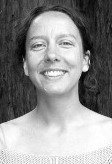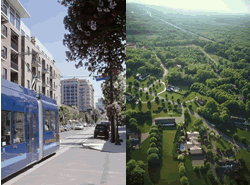Following 2014’s biggest ever BISA (The British International Studies Association) Postgraduate Network conference in Dublin, Ireland, the 2015 BISA PGN Annual Conference will be taking place at King’s College London in the heart of London. It will take place on the 30th March, 2015.
Last year, five BISA Working Groups sponsored specialist
panels at PGN Conference, including the BISA Environment Working Group
(WG), based on their areas of research, and BISA PGN are looking to
expand the scheme this year. The BISA Environment WG have been
guaranteed several panels at this year’s PGN Conference, and are now
looking for papers on the following themes.
The paper topics and their panel convenors are as
follows. If you are interested in submitting a paper, please contact the
listed panel convenor. Each submission requires a paper title, your university affiliation, and a 250 word abstract, by the 14th January.
1. Environmental Change and Inequality:
This panel intends to address the question of whether
social and political responses to environmental change can reduce global
inequality.
Panel convenor- Ross Gillard, ee12rg@leeds.ac.uk
2. Environmental Commitments and (Non)-implementation.
This panel aims to discuss problems that arise during
the process of putting international and domestic environmental
commitments into practice at the micro levels.
Panel convenor- Elena Gorianova, elena.gorianova@
3. The Role of Corporate Environmental
Disclosure and Reporting in the Emergence of 'Green' Economic Narratives
and Accumulation Strategies:
There is a considerable body of literature on corporate environmental disclosure and reporting as a neoliberal 'alternative' mode of governance. We welcome proposals that go beyond such an assessment of the immediate effects of reporting and examine whether and how such information production provides basic blocs for the formulation of 'green' economic narratives and accumulation strategies.
There is a considerable body of literature on corporate environmental disclosure and reporting as a neoliberal 'alternative' mode of governance. We welcome proposals that go beyond such an assessment of the immediate effects of reporting and examine whether and how such information production provides basic blocs for the formulation of 'green' economic narratives and accumulation strategies.
Panel convenor- Nino David Jordan, nino.jordan.13@ucl.ac.
Attendance at the Conference will be an ideal
opportunity for PhD students to experience an academic conference and
receive feedback on their research. The keynote speaker will be the
Chair of BISA and Head of Department at the University of Sheffield,
Professor Nicola Phillips. The event will also be followed by a wine
reception at King’s College London."
General queries about the conference can be sent to Paul Tobin: paul.tobin@york.ac.uk




